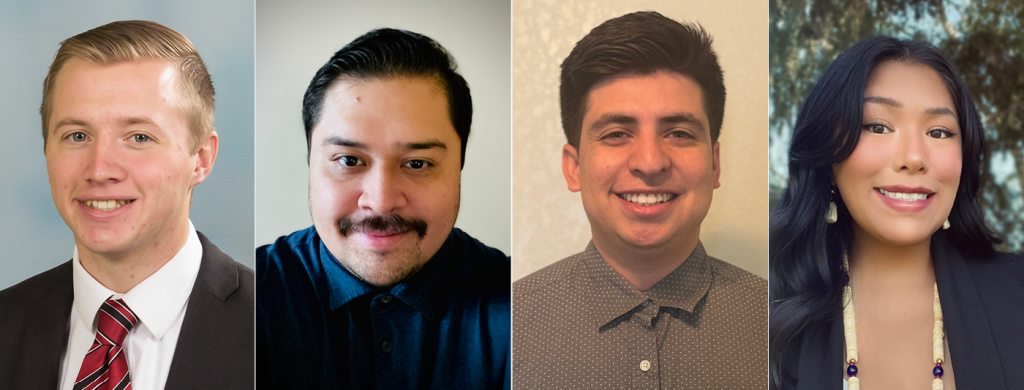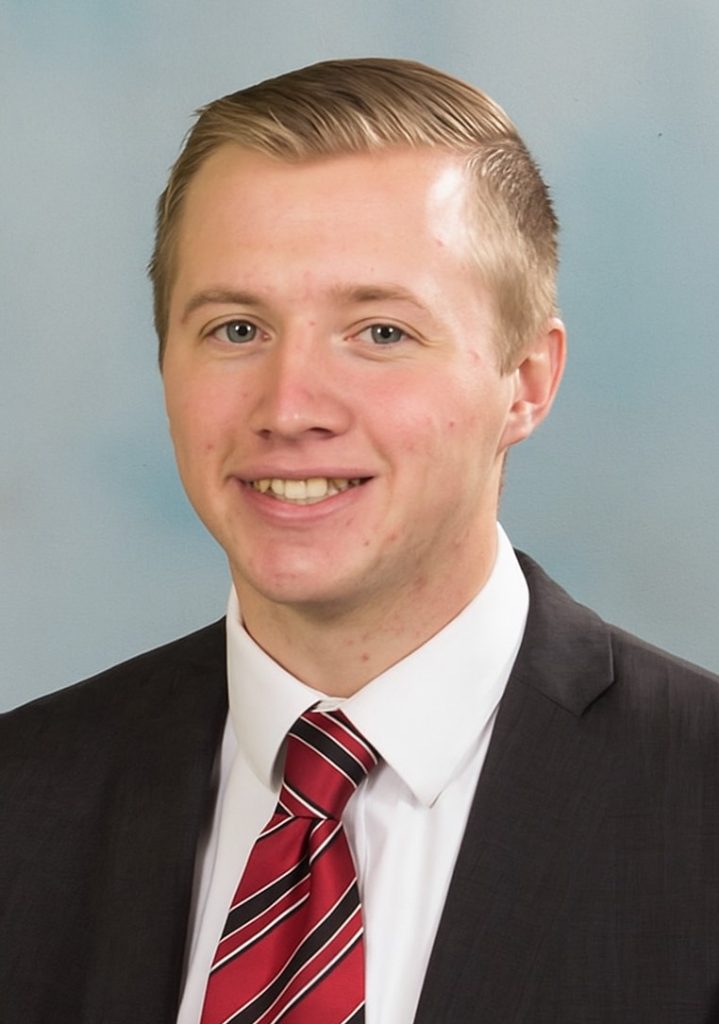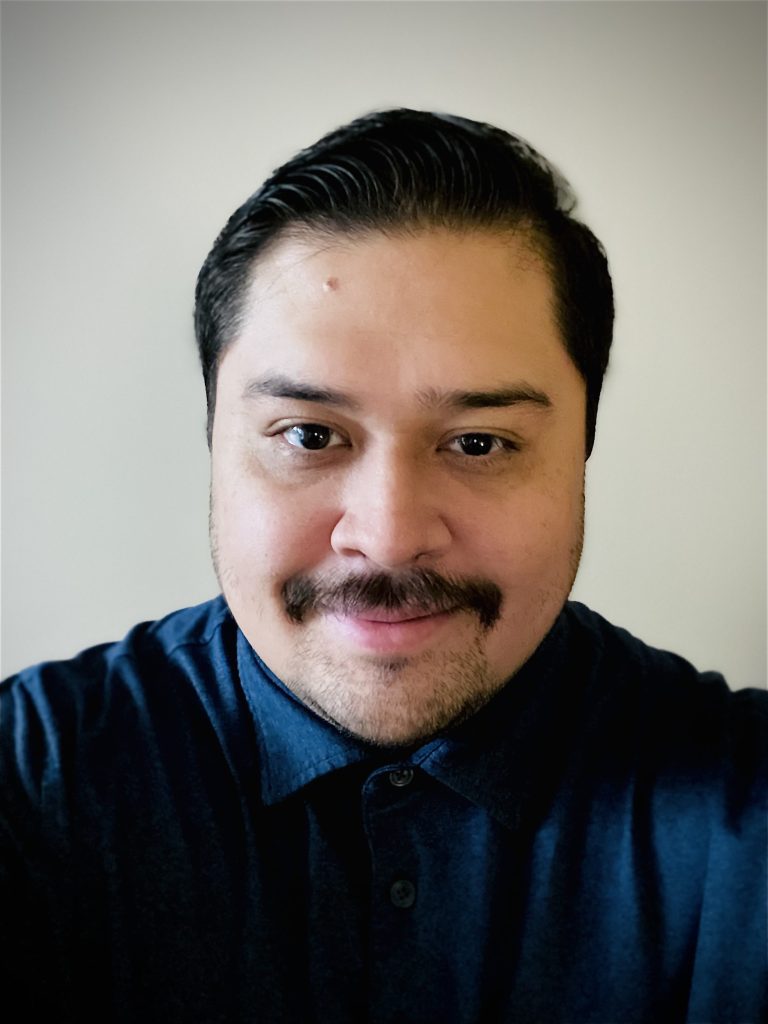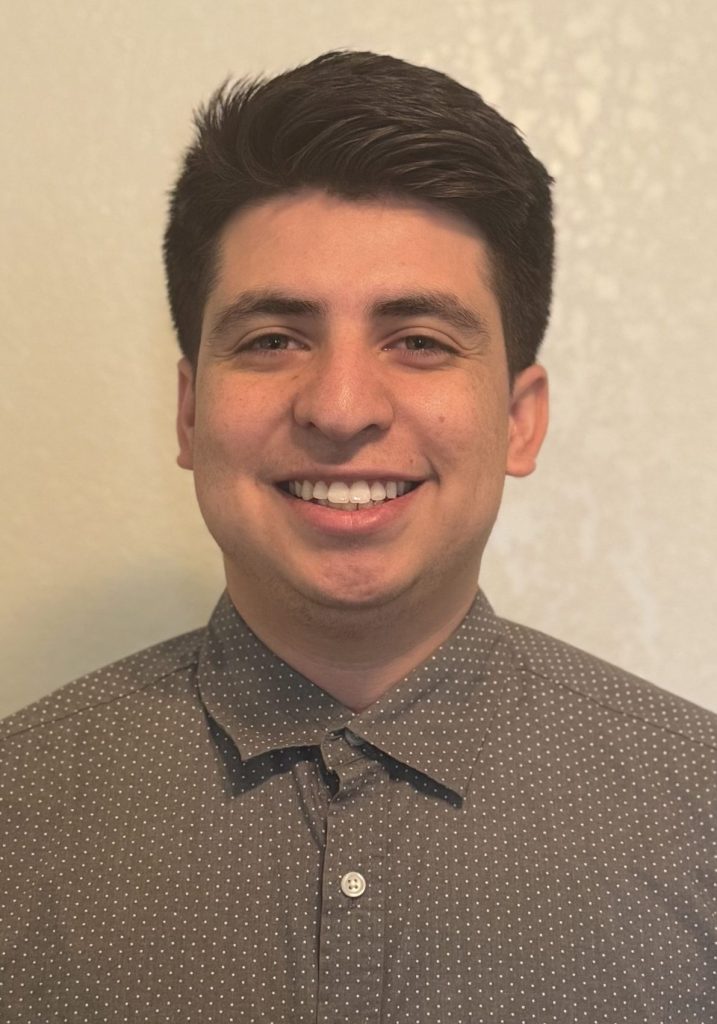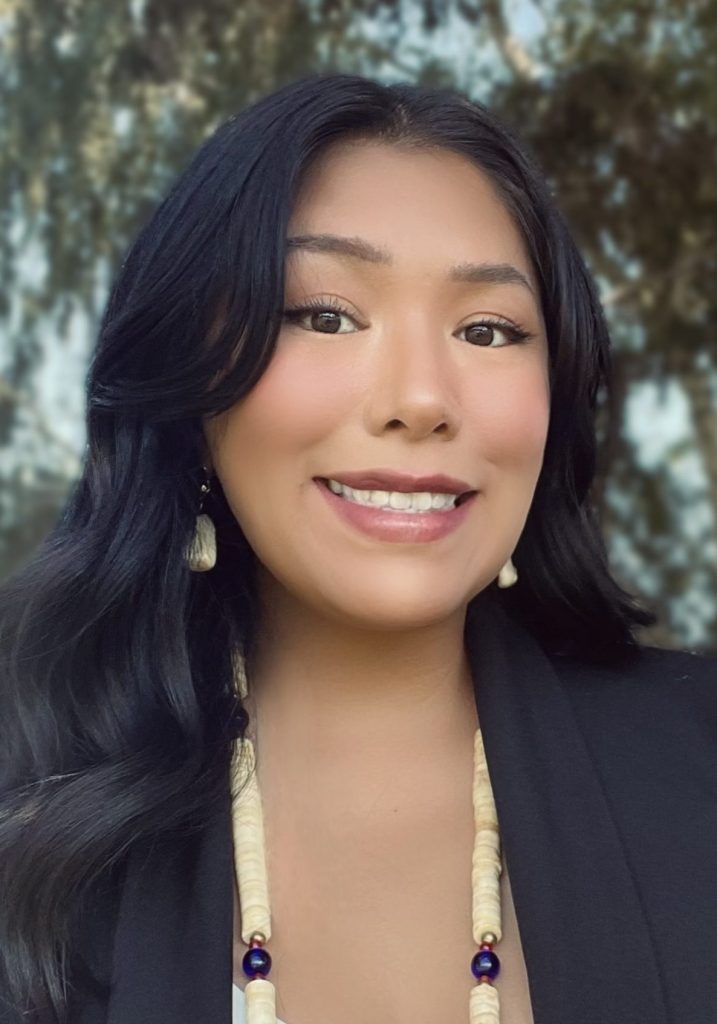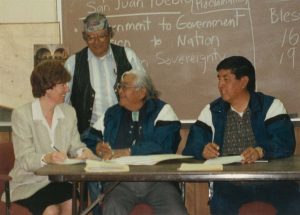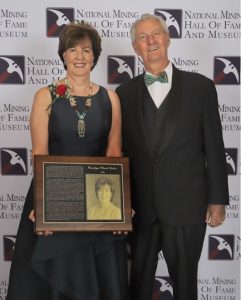Author Archives: dwilliams
Job opportunity: Associate attorney
Zwillinger Wulkan is seeking an associate attorney to work exclusively in its Indian Law section. The firm is particularly interested in candidates admitted to the Navajo Nation Bar with 1–5 years of legal experience.
Qualifications:
- Juris Doctor
- Admission to the Navajo Nation Bar
- 1–5 years of relevant legal experience
- Strong research, writing and advocacy skills
- Commitment to serving Tribal communities
For more information or to apply, contact:
Benjamin L. Rundall
ben.rundall@zwfirm.com | www.zwfirm.com
Where are they now? Feat. Carolyn Clark Loder (MLS ’11)
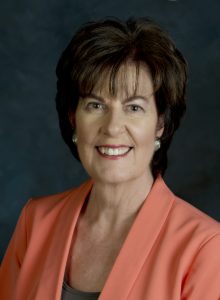
Carolyn Clark Loder is a seasoned leader in the mining and natural resources industry, serving on the boards of directors of K2 Gold Corporation and Integra Resources, where she also chairs its Environment, Social, Governance Committee. As a board consultant and expert witness in mineral rights and Tribal engagement, she advocates for Indigenous inclusion at the highest levels of corporate decision-making.
Earning her Master of Legal Studies in Indian Law from ASU Law in 2011 was a transformative experience that broadened her perspective and deepened her commitment to equity and education. The first woman inducted into the National Mining Hall of Fame in 2023, Carolyn continues to champion change in an industry historically led by white men — ensuring that all stakeholders, especially First Nations, have a seat at the table.
Q: What has your journey been like since graduating?
A: Upon getting my MLS in Indian Law, it opened up a broader view of the world that has enabled me to influence corporate America with that vision. As a non-Indian, I admit I knew nothing of our colonial past as I was indoctrinated into learning only the history of MANkind. As a young girl I could find no women heroines in history – they were all men. And all white men. And, I knew nothing of our First Nations.
Being inducted into the National Mining Hall of Fame as the first living woman — and the first woman in 100 years — is not only amazing to me, but more a reflection of our past in that it has always been white men and corporate leaders who were recognized. I have seen a change in perspective over the last 40 years that wealth seeking is not the end all. All stakeholders are important in projects, not just the shareholders. I am fortunate to serve on publicly traded boards that recognize this shirt and support my belief that our First Nations have a voice and can bring positive change to the table.
I also was able to help influence a decision that brought a Tribal member onto a publicly traded Board. That is the next step – to have Tribal members on publicly traded Boards so that their advice and opinions are incorporated into decision making. Having them as employees is not the same — it does not effectuate change at the top.
Q: What is the most valuable lesson you learned in the classroom that has helped you in your career?
A: The lesson I learned in the classroom is that Indian Law is complicated — very complicated — and despite my degree, I still know very little. The general public knows even less. I always have stories to tell folks and I am pleasantly surprised at how much interest people have and the questions they ask about Indian law. I wish the basics of Indian Law were taught in elementary school, particularly in the western states. It should be mandatory in high school civic classes.
Q: Is there anything you’ve learned after graduating that you wish you had learned in class?
A: I miss the CLE classes that were always on current topics. They were so informative and I felt like I was still in the mainstream of learning. Without those classes, I lost touch with the Indian Law program, other than continued contact with a few students.
I also wish I had learned about the Tribes in Arizona. Having lived here for 30 years and being born in California, I still know so little of the Tribes of my homeland.
Q: What originally made you choose ASU Law?
A: Clearly, it was the Indian Law program and the staff and professors and Heidi McNeil Staudenmaier of Snell Wilmer. She and I worked together on a landmark Tribal land exchange in New Mexico that returned 20,000 acres of ancestral lands to two Tribes. She told me about a fairly new degree at ASU called an MLS. She suggested I speak to Associate Dean Gary Birnbaum to see if I could focus my course work entirely on Indian Law. I had completed my first-year law courses elsewhere years earlier, so those credits were already in place. Upon acceptance, I truly felt welcomed, particularly being the ‘older’ one in the classrooms. And the students were phenomenal. They welcomed me, and I made sure I always found time for them to share their concerns. Being older, I was a safe haven for them to discuss their fears, their problems and their hopes and dreams. I had not anticipated that my advice would even be sought after — I truly thought they would be disinterested. But, it was the opposite.
Q: What advice would you give to current students?
A: I would say that they are truly blessed being in the Indian Law program at ASU, especially because it focuses on Indian Law versus Indigenous Law. There is so much to learn in the U.S. that I feel that if I took the global approach, I would not have learned as much as I did -– which is still very little. Focusing on the U.S. has given me the advantage to apply that knowledge to specific projects, situations and decisions.
Q: What’s something you’d like people to know about you? (This can be a fun fact or anything else you’d like to share!)
A: I was married years ago in Antarctica to a Canadian on lands claimed by Argentina and not recognized by the U.S., by a Russian Ice Breaker Captain. My husband was born in Labrador, before it joined Canada as part of the province of Newfoundland and Labrador. He was born in the northern community of Hopedale, which is now a National Historic Site and legislative capital of the autonomous Inuit region of Nunatsiavut. His father ran the trading post and his mother cared for the Indigenous Peoples of Labrador with only a nursing degree and a dog sled. She received the Order of Canada by Her Majesty Queen Elizabeth II, recognizing her dedication to the Native community and service to the Nation. Good footsteps for me to follow.
Q: Is there anything else you’d like to add?
A: I have had a very blessed life in that I grew up in a rural area with no knowledge of the world and at age 18, I sailed around the world with World Campus Afloat. That exposure changed my life forever. I became a sponge for knowledge and with supportive parents, family, friends and community I was able to pursue my hopes and dreams. I wish everyone had such a support group.
Job opportunity: Deputy Prosecutor and/or Public Defender
The Hopi Tribe is seeking a qualified person to serve as Deputy Prosecutor and/or Public Defender of the Hopi Tribal Office of the Prosecutor in Keams Canyon, Arizona on the Hopi Indian Reservation. The Prosecutor’s office is located approximately 60 miles northeast of Winslow, Arizona.
The position requires an experienced preferred J.D. from an ABA accredited law school and admission to a State Bar.
Come make a difference, experience a unique culture deeply rooted in history, enjoy the high country climate and fresh air.
If interested, please submit a resume to the Court Administrator at Ttewawina@hopitelecom.net or fax to (928) 738-5561. Applicants will be required to comply with the Hopi Tribe’s Human Resource requirements.
Where are they now? Feat. Lena Jackson-Eckert (MLS ’08)
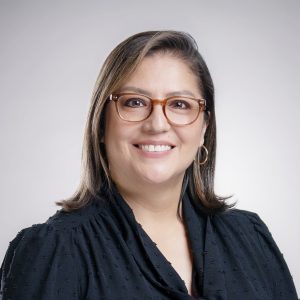
A graduate of ASU Law’s Master of Legal Studies program, Salt River Pima-Maricopa Indian Community member Lena Jackson-Eckert now serves as assistant community manager for SRPMIC, where she oversees several key tribal government departments, including Health and Human Services.
Reflecting on her journey, Jackson-Eckert said, “I think it’s pretty cool to be able to say I went to ASU Law. I made relationships I still have today, and I see people from my cohort doing awesome work all over the country.”
Her path illustrates how the MLS can deepen existing experience, provide practical tools for leadership, and foster a community of peers committed to serving Indian Country.
After working as an advocate in the tribal prosecutor’s office, Jackson-Eckert decided to pursue the MLS to strengthen her understanding of legal systems and better support her community. She graduated in 2008 as part of the program’s inaugural cohort.
Although she entered the program with courtroom experience and a strong grasp of criminal law, Jackson-Eckert found particular value in the Indian law courses. One standout was a Native American health care law class taught by visiting professor Dr. Donald Warne, whose teachings continue to inform her work with Indian Health Services and the operation of Salt River’s tribally run health clinic.
“There are only a handful of experts in this area,” she said. Having access to that kind of knowledge was “incredibly meaningful.”
Jackson-Eckert completed her MLS while working full time, thanks to a supportive supervisor and access to education leave. She encourages prospective students—especially those working in tribal government—to pursue the MLS if they have a strong support system in place.
The degree directly contributed to her professional growth. Jackson-Eckert had long aimed to oversee multiple departments, and the position she holds today required a master’s degree. The MLS not only fulfilled that requirement, but also enhanced her ability to navigate legal systems more effectively—sharpening her skills in reading codes, understanding legal language, and working closely with tribal attorneys.
ILC 2024-2025 Reflection
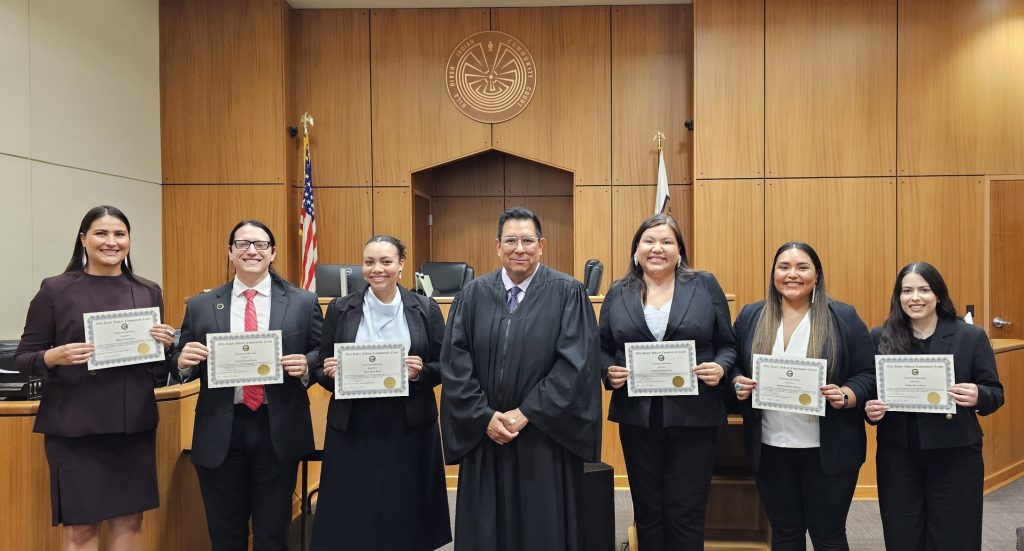
During the 2024-2025 academic year, five student attorneys dedicated nearly 1,800 hours to the Indian Legal Clinic (ILC) at ASU Law. Under the leadership of Patty Ferguson-Bohnee, director and Charles M. Brewer professor of trial advocacy at ASU Law, the ILC collectively managed 35 cases spanning Tribal, state and federal law.
Third-year law students Garrett Bryan, Shandiin Herrera, Imani Hicks, Morgan Oakes and Sadie Red Eagle served as student attorneys and represented clients in a wide range of matters. Their work included cases involving voting rights, criminal defense, federal recognition and the restoration of civil rights — such as the right to vote — for disenfranchised individuals.
In addition to casework, ILC students developed practical skills through class simulations designed to build analytical and trial advocacy abilities. These exercises culminated in a full Tribal court civil mock trial, helping prepare students to become effective advocates for their future careers.
As part of ILC’s Arizona Native Vote Election Protection, student attorneys focused on the 2024 election cycle.
In the fall semester, ILC students appeared regularly in Tribal courts. Student attorneys defended clients in Ak-Chin Indian Community Tribal Court. Bryan appeared twice in Traffic Court on behalf of the Gila River Indian Community to prosecute civil traffic violations.
ILC also contributed changes to federal regulations governing the acknowledgment process, which now allows previously denied Tribes a limited opportunity to reapply for federal recognition. The new rule, effective February 14, 2025, follows court decisions that deemed the previous ban on re-petitioning unfair. The ILC submitted comments emphasizing fairness and the importance of recognition for Tribal sovereignty and cultural survival — comments that were cited in the final rule.
ILC submitted background information on the United States to the United Nations Special Rapporteur on the rights of Indigenous Peoples, Dr. Albert K. Barume, for his reports to international organizations. In March, ILC submitted input on the process and challenges of obtaining federal recognition for Special Rapporteur Barume’s report to be presented at the 60th session of the Human Rights Council, in September 2025, where he intends to examine ways and means of overcoming obstacles and promoting best practices related to the recognition by States of Indigenous Peoples. In April, ILC submitted information about the recognition of Indigenous Peoples’ rights to lands, territories and resources in the United States. Per a United Nations Human Rights Council resolution, Special Rapporteur Barume is dedicating his next annual report to the UN General Assembly to the theme “Identification, Documentation, Demarcation, Registration, and Titling of Indigenous Peoples’ Lands: Practices and Lessons Learned”.
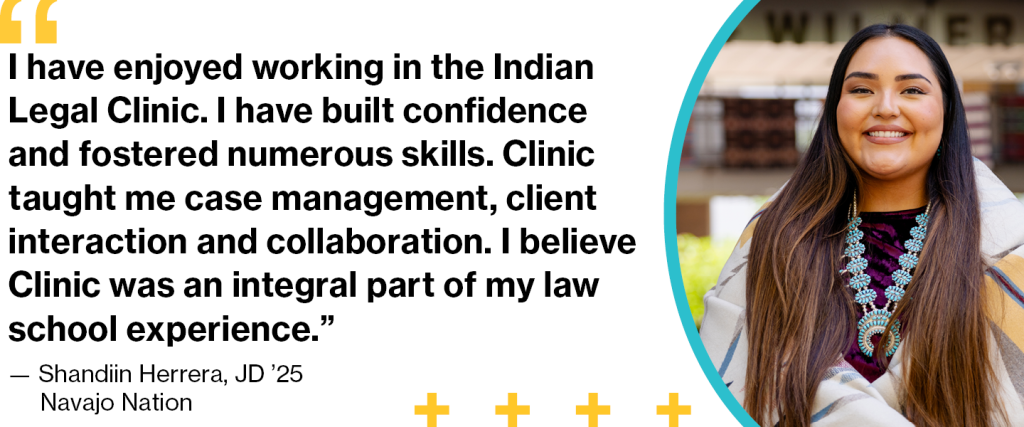
“I am very thankful for the opportunity to work with real clients in a real court,” said Herrera. “The opportunity to practice in a courtroom while in law school was so critical to my education. Through the clinic, I was able to practice litigation skills through in-class simulations and then apply my improved skills in the courtroom. This approach fosters growth and confidence. What is unfamiliar, like addressing a judge, questioning a witness, and filing pleadings, begins to feel routine.”
Additionally, the ILC continued its Estate Planning course taught by Professor Helen Burtis (’07) and hosted four clinics serving Tribal communities across Arizona and California.
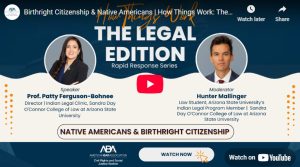
In April, second-year law student Hunter Mallinger and Ferguson-Bohnee presented to the ABA Civil Rights and Social Justice section. In the Rapid Response on Native Americans & Birthright Citizenship, they discussed the legal and civil rights implications of Executive Order 14160, which targets birthright citizenship, and its impact on Native Americans. The conversation explored the history and legal foundations of Native American citizenship, dispelled misconceptions, and highlighted current threats from immigration enforcement, offering valuable insights for affected Native Americans, their communities, advocates and legal professionals.
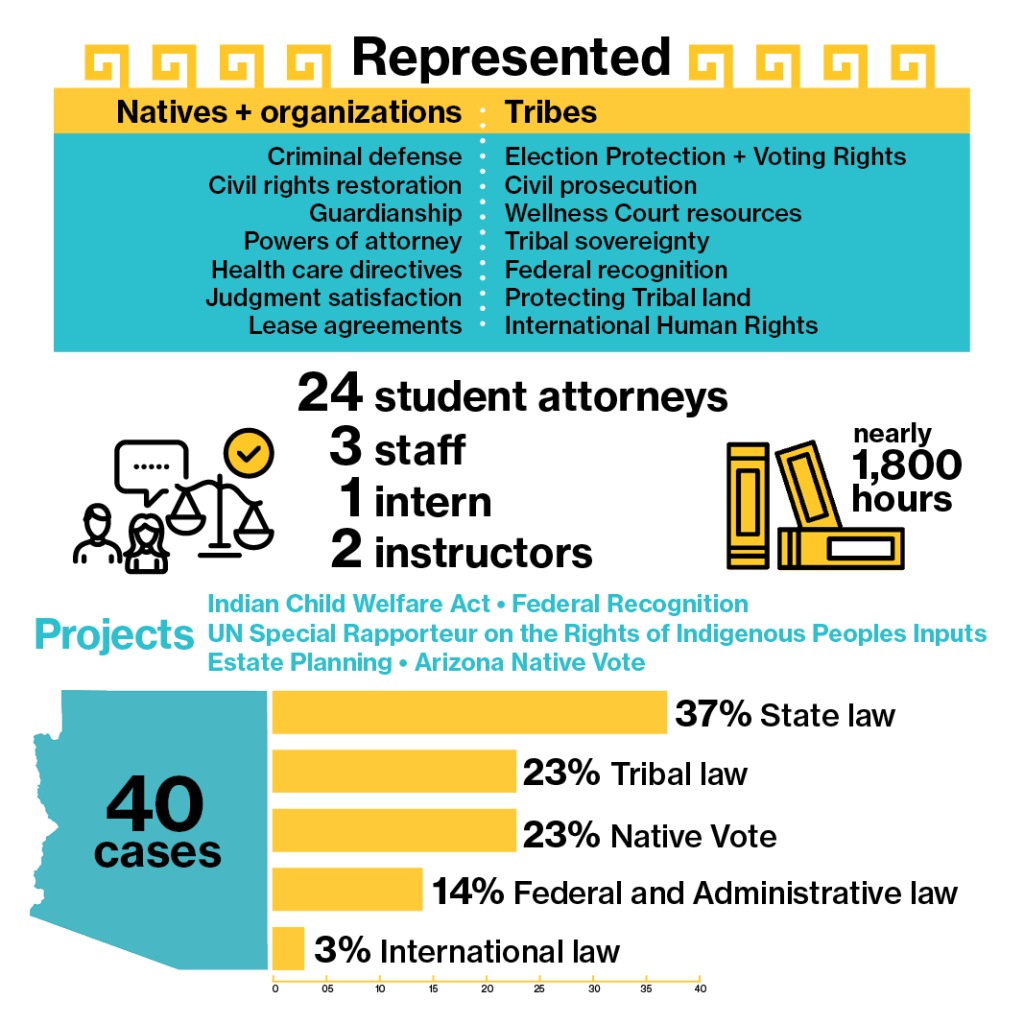
Learn more about the Indian Legal Clinic’s
2024–2025 community impact:
Estate Planning 2024-2025 Reflection
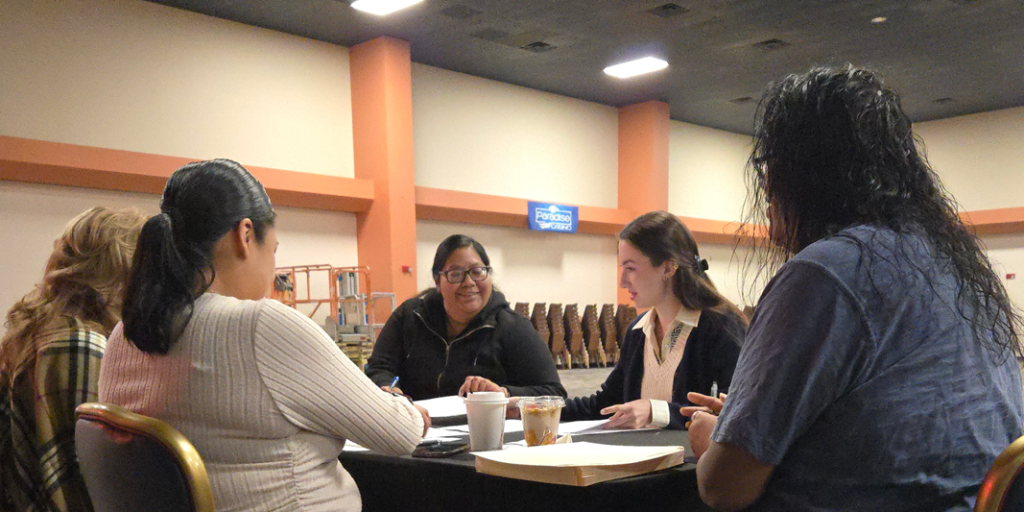
The Indian Legal Clinic’s Estate Planning course, taught by Professor Helen Burtis (’07), continued to provide vital legal services to Tribal communities throughout the 2024–2025 academic year. Through four estate planning clinics, law students worked one-on-one with Tribal members to help them articulate their estate planning goals and wishes, draft custom legal documents, and execute finalized Indian wills and powers of attorney that comply with Tribal, state and federal laws.
This year’s clinics served members of the Gila River Indian Community, the Pechanga Band of Indians, the Quechan Indian Tribe, and another Arizona Tribe. Before each clinic, students completed a five-week preparatory course covering statutes and legal frameworks relevant to estate planning in Indian Country. This foundational training allowed them to confidently draft and explain wills and health care powers of attorney tailored to the cultural and legal needs of each Tribal client.
Over fall break, eight law students traveled to Temecula Valley, California, to work with members of the Pechanga Band of Indians. Students Jessica Banks (3L), Gabe Dowell (3L), Shandiin Herrera (3L), Imani Hicks (3L), Matthew McGraw (3L), Cristella Medrano (3L), Sam Phillips (2L) and Ian Roche (3L) assisted 14 clients in preparing estate planning documents, including wills and health care powers of attorney.
In November, five clinic students traveled to the homelands of the Quechan Indian Tribe for two impactful days of service. Students Peyton Liang (3L), Ronnie Strode (2L), Kendra Sutherland (3L), Adare Taylor (3L) and Phillips prepared 10 comprehensive wills and seven health care powers of attorney after listening to clients’ unique stories and understanding their goals. The clinic further strengthened the longstanding relationship between the Indian Legal Clinic and the Quechan Indian Tribe.
Two additional clinics were held in the spring. On March 28-29, student attorneys Jerimy Billy (2L), Emily Krainski (3L), Sarah LeFebre (3L), Kendall Pack (3L) and Phillips assisted members of the Gila River Indian Community Tribal. On April 11-12, students Jessica Banks (3L), Grace Hulin (3L), Samantha Johnson (3L) and Phillips provided estate planning for another local Tribe. Across both clinics, the team drafted 14 wills and 10 health care powers of attorney.
The Estate Planning clinics offer student attorneys a meaningful learning experience that deepens students’ legal skills by practicing delivering critical legal services while appreciating the special concerns of Indian clients. Over the course of each two-day clinic, students meet individually with clients, listen carefully to their wishes and translate those into legal documents that protect their assets and dignity. This hands-on experience not only sharpens students’ legal skills but also strengthens their connection to the Tribal communities they serve.
Sam Phillips, who participated in five estate planning clinics, reflected on the impact of the work: “They have become work that is very important to me, especially helping elders as a way to give back to the communities that continually support us in the Indian Legal Program.”
The Indian Legal Program at ASU Law remains grateful to the Tribal nations who open their doors to host these clinics and make it possible for students to learn by serving. These partnerships are foundational to the program’s mission of preparing future lawyers to work with Tribal communities with knowledge, humility and respect.
Native Vote 2024-2025 Reflection
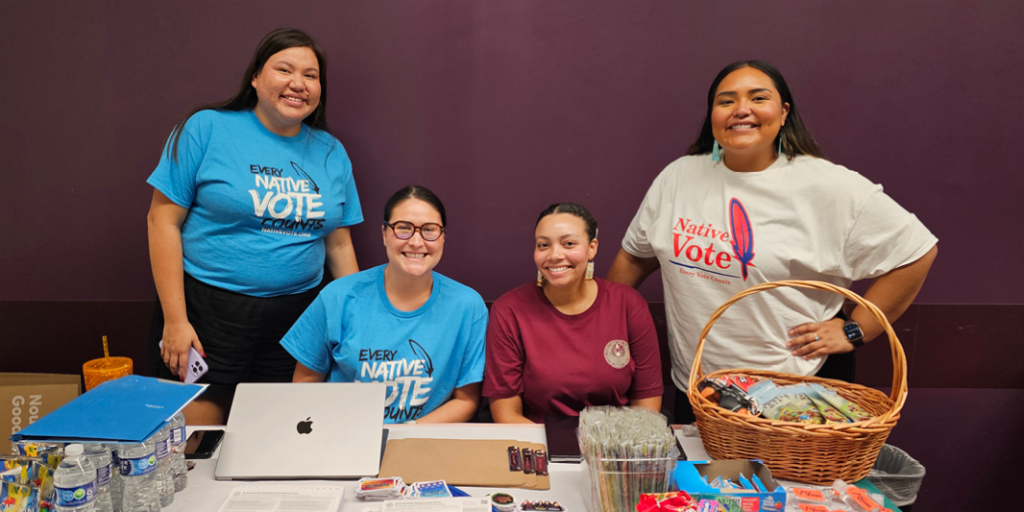
During the 2024–2025 academic year, the Indian Legal Clinic (ILC) at the Sandra Day O’Connor College of Law focused its efforts on the Native Vote Election Protection Project, ensuring Arizona’s Native voters were informed, supported and empowered throughout the state and federal election cycle. This year, the ILC welcomed Maya Araujo as the management intern, tasked with tracking and producing the most accurate data on Native voter participation in Arizona.
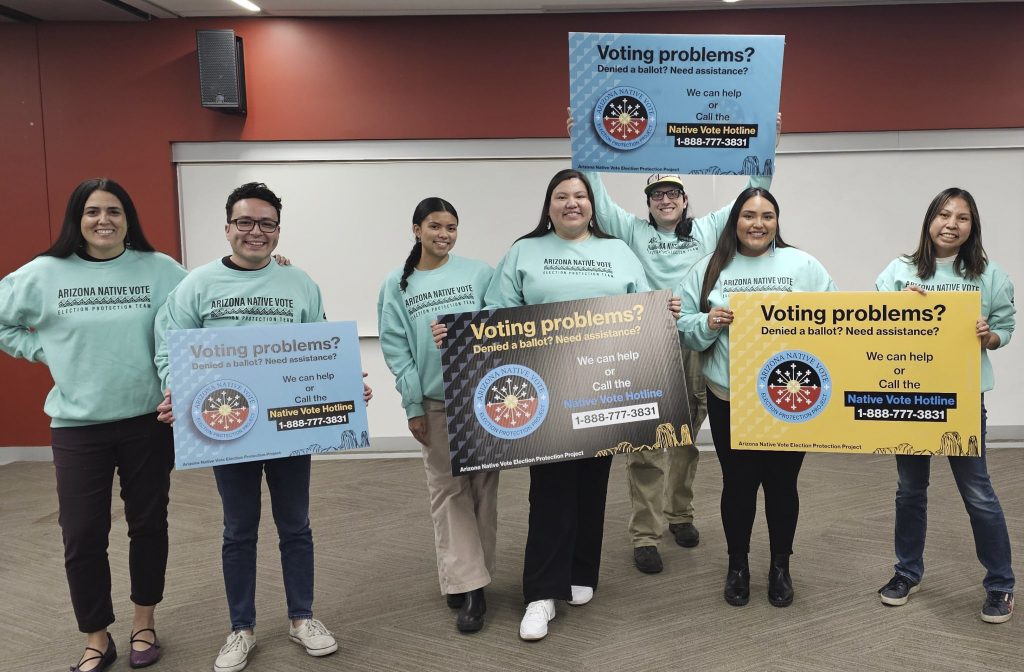
The 2024 Arizona Native Vote Election Protection Project team included our Indian Legal Clinic third-year law students Garrett Bryan, Shandiin Herrera (co-lead), Imani Hicks, Morgan Oakes and Sadie Red Eagle (co-lead), all working under the supervision of ILC Director Patty Ferguson-Bohnee. They were joined by a dedicated team of advocates running the hotline with Democracy Director Joel Edman, Honore Callingham (’18), Torey Dolan (’19), Jordan Garcia (’23), Blair Tarman-Toner (’20), Alexander Castillo-Nunez from the Inter Tribal Council of Arizona (ITCA) and Araujo.
In collaboration with partner organizations, the team actively defended Native voting rights across the state. The ILC participated in and drafted four election lawsuits on behalf of the Navajo Nation and Gila River Indian Community. These cases sought to compel Arizona counties to comply with election laws and ensure polling locations remained open in the face of disruptions on Election Day.
The Native Vote Election Protection Project successfully recruited and trained 100 volunteers who were deployed to 63 polling places across nine counties and 11 Tribal reservations. On Election Day, volunteers provided real-time support to voters, addressed legal questions and ensured that Arizona election laws were properly followed. The team fielded over 300 hotline calls and documented 227 incidents — ranging from ballot issues, voter registration issues and polling location equipment malfunctions. Volunteers also collected 35 sworn declarations from voters, which became crucial evidence in same-day litigation against Apache County. The resulting court order extended voting by two hours at affected locations — ensuring that every eligible voter had the opportunity to cast their ballot.
Following the election, the ILC presented its findings and recommendations to multiple stakeholders. The team briefed the Navajo Nation Department of Justice on voter turnout, Election Day litigation, Election Day litigation, polling issues on the Nation and statewide trends.
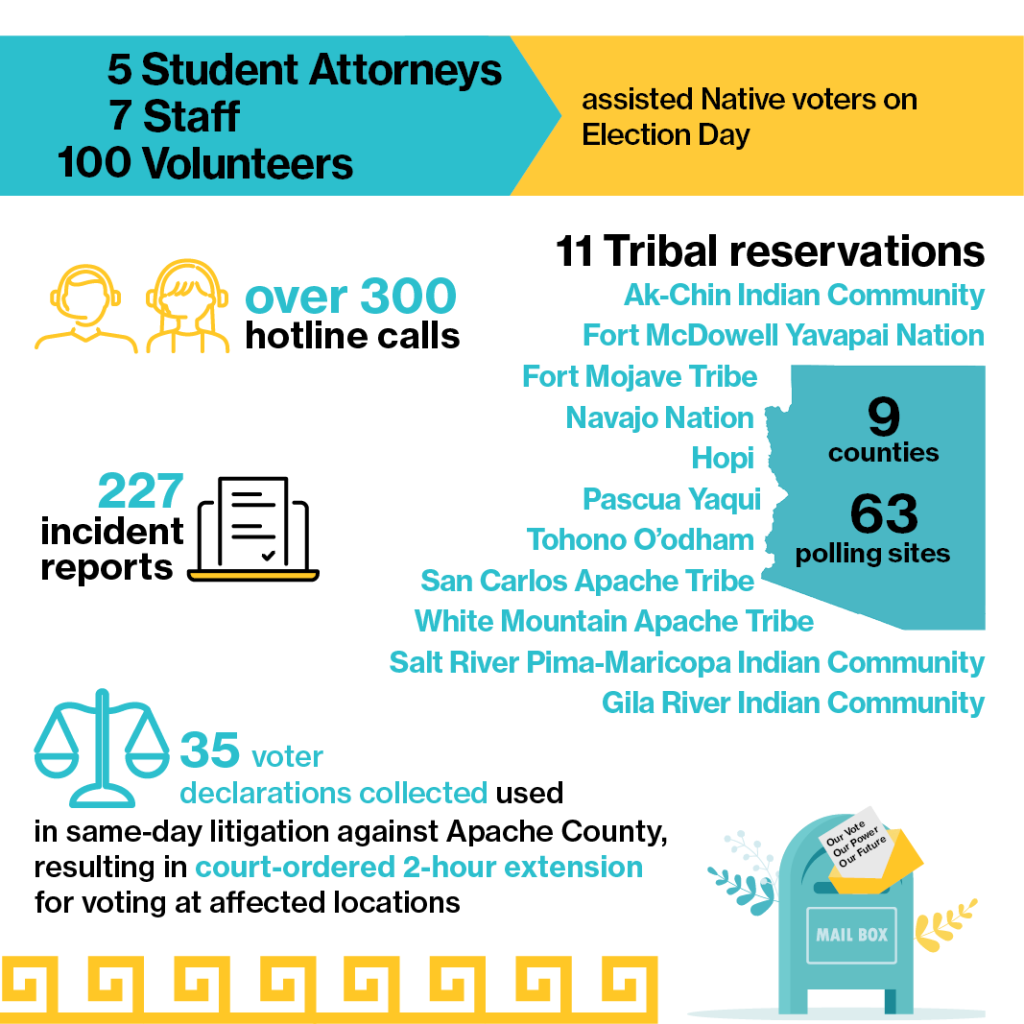
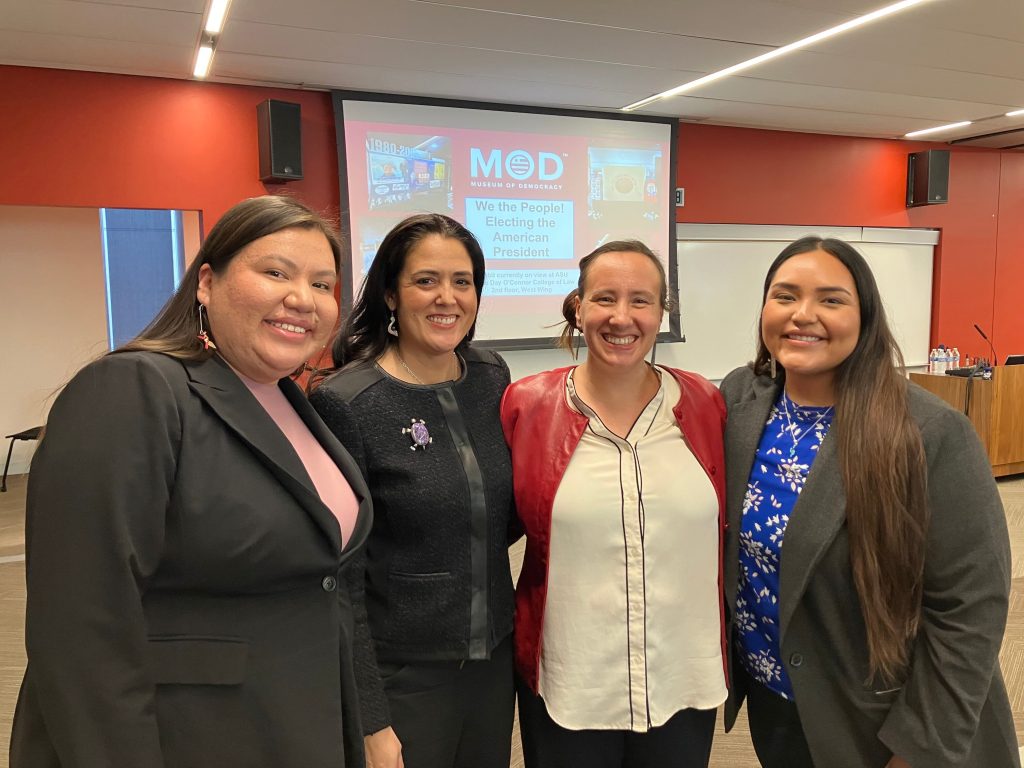
In January, student co-leads Red Eagle and Herrera joined Katherine Belzowski of the Navajo Nation Department of Justice for a panel titled “Democracy Ambassadors and the Native Vote” at the American Bar Association’s Democracy Task Force for American Democracy Listening Session in Arizona. Moderated by Ferguson-Bohnee, the panel shared firsthand insights from Chinle polling site on Election Day and highlighted failures in Apache County.
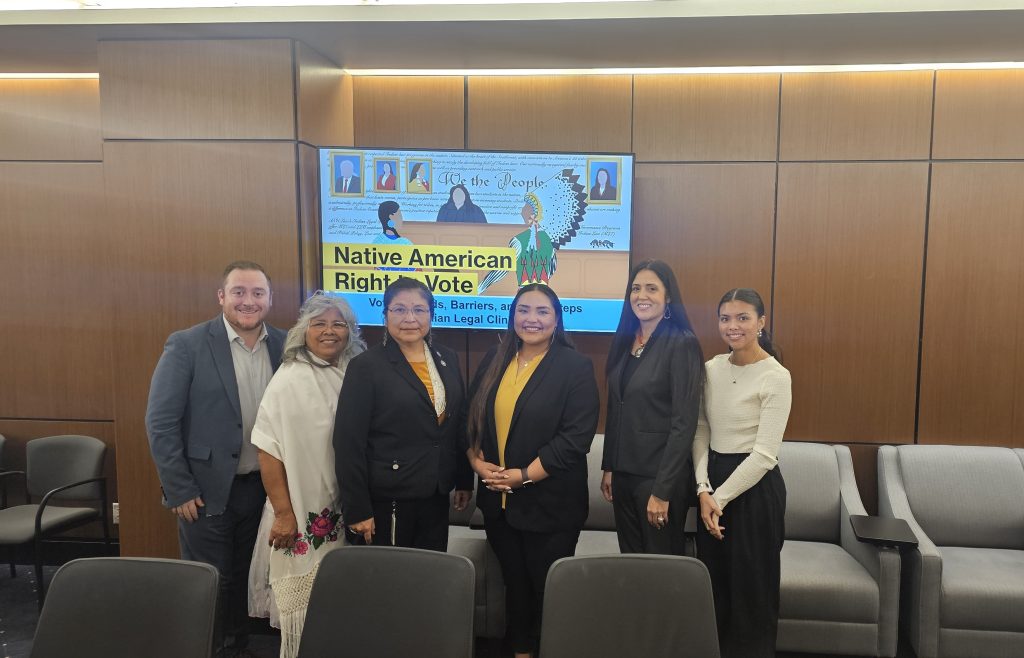
In February, ILC was invited to present “Challenges for Native Voters and Voter Turnout” to the Indigenous Peoples Caucus at the Arizona state legislature. Araujo and Herrera joined Ferguson-Bohnee to outline barriers to voting, discuss the Project’s mission, review Native voter data from 2016-2024 and offer recommendations to improve accessibility. Ferguson-Bohnee also presented to the League of Women Voters of Arizona on how identification requirements, voting by mail and polling location access impact tribal communities.
In April, the Law Journal for Social Justice at ASU hosted its Spring Symposium, “Voting Rights and Voter Disenfranchisement in Arizona,” at the Sandra Day O’Connor College of Law. The symposium brought together legal advocates, community organizers and election officials to examine barriers to voting access in Arizona and discuss strategies to reform procedures for future election cycles. Among the featured speakers were Araujo, Ferguson-Bohnee, Herrera and Red Eagle.
Also in April, ILP student Hunter Mallinger (3L) joined Ferguson-Bohnee in a presentation to the ABA Civil Rights and Social Justice section. During the Rapid Response on Native Americans & Birthright Citizenship, they discussed Executive Order 14160 and its impact on Native Americans. The session explored the legal history of Native American citizenship, dispelled misconceptions, and addressed emerging threats from immigration policy and enforcement.
In May, ILC’s work was again highlighted during the ITCA Native Vote Convening, where Tribal leaders, election officials, legal scholars and voting-rights advocates reflected on the 2024 election cycle. Herrera and Red Eagle shared the Project’s findings, discussed common issues observed at the polls and offered strategies for improving voter access in Arizona’s Tribal communities.
Through strategic litigation, grassroots organizing and civic education, the Indian Legal Clinic’s Native Vote Election Protection Project continues to play a vital role in protecting the rights of Native voters and promoting a more inclusive and equitable democracy in Arizona.
NARF: Summer 2026 Law Clerk and Fall 2025 Extern opportunities
Founded in 1970, the Native American Rights Fund (NARF) is the oldest and largest non-profit law firm dedicated to asserting and defending the rights of Indian tribes, organizations, and individuals nationwide. NARF’s practice is concentrated in five key areas: the preservation of tribal existence; the protection of tribal natural resources; the promotion of Native American human rights; the accountability of governments to Native Americans; and the development of Indian law and educating the public about Indian rights, laws, and issues. Learn more at narf.org.
The NARF summer clerkship program is a ten- to twelve-week program for students who have completed their second year of law school. Clerks are expected to work at least 40 hours per week during this period and are compensated with salaries comparable to those of the federal government and other non-profit firms. Although public interest funding programs help provide these salaries, clerks are also encouraged to seek additional financial support through their law school’s public interest programs or through other public interest scholarships. See below for additional information on the summer clerkship program.
Deadline: Aug. 15, 2025
To apply, go to: 2026 Summer Clerk
NARF’s school year programs are open to students in their second or third years of law school. The school year programs are semester-long programs where students may work for financial compensation, for school credit, or as volunteers. The paid positions (clerkships) are part-time positions (20 hours per week) and the positions for school credit (externships) are either full- or part-time positions. Students may also be able to volunteer. Positions are available in NARF’s three offices—Boulder, Colorado, Washington, DC, and Anchorage, Alaska.
Deadline: July 15, 2025
To apply, go to: Fall 2025 Extern
Job opportunity: Attorney
JOB SUMMARY
The Reservation Attorney shall work with other Attorneys in the Office of Reservation Attorney to represent and provide legal counsel to the Tulalip Tribes government in all judicial and administrative forums and in the Tribes’ governmental and business relations with outside entities. They should have experience with the legal functioning of a tribal government and be prepared to provide day-to-day legal counsel on all aspects of governmental action.
ESSENTIAL JOB DUTIES
- Providing legal services to the Tribal government, Executive Directors, CEOs, Board of Directors, and various other departments, enterprises, commissions and committees.
- Must be able to practice in the area of child welfare and have familiarity with the Indian Child Welfare Act.
- Appear in Tribal and State Courts on behalf of the Tulalip Tribes in child welfare proceedings.
- Maintain the ability to read, analyze, and interpret the most complex documents.
- To respond effectively to the most sensitive inquires or issues in a confidential manner.
- Write memos, correspondence and articles using original or innovative techniques or style.
- Make effective and persuasive speeches and presentations on controversial or complex topics to Tribal Leadership, management, public groups, and/or other governmental agencies.
- Regular and satisfactory attendance and punctuality.
- Other related job duties as assigned.
MINIMUM REQUIRED EDUCATION
- High School Diploma or GED equivalent.
- Juris Doctorate from an ABA accredited law school.
MINIMUM RELATED EXPERIENCE - One (1) year of experience practicing law or equivalent experience advocating for or providing counsel to Indian tribes or tribal communities.
- Three (3) years of experience representing or working with Indian tribes.
See job posting for full details: Attorney-Job-Description-20250416

